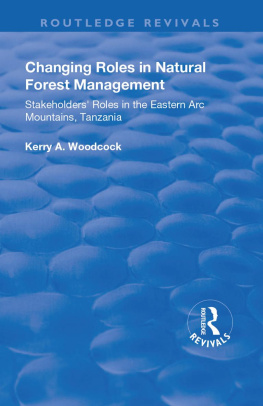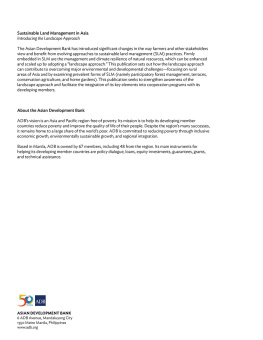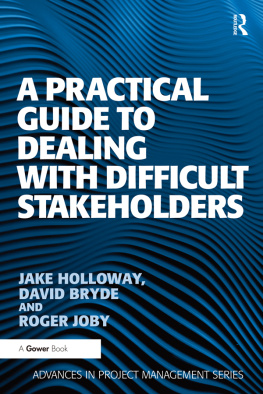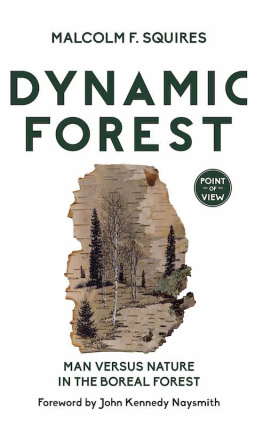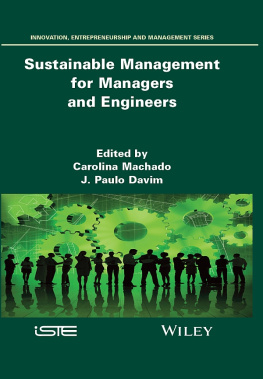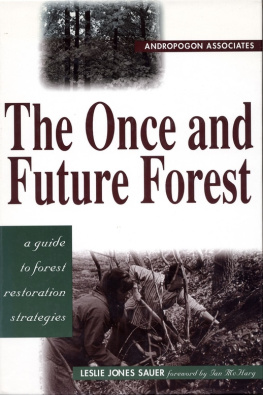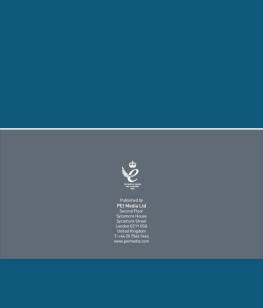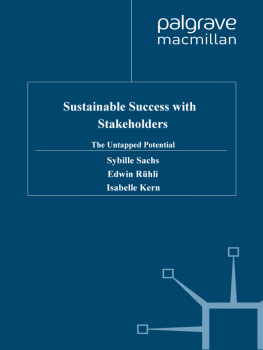CHANGING ROLES IN NATURAL FOREST MANAGEMENT
To Rupert, Lana, Tegan, Mam, Dad, Sin and Barry,
For life as it has been and life as it is now.
Changing Roles in Natural
Forest Management
Stakeholders roles in the Eastern Arc
Mountains, Tanzania
KERRY A. WOODCOCK
First published 2002 by Ashgate Publishing
Reissued 2018 by Routledge
2 Park Square, Milton Park, Abingdon, Oxon OX14 4RN
711 Third Avenue, New York, NY 10017, USA
Routledge is an imprint of the Taylor & Francis Group, an informa business
Copyright Kerry A. Woodcock 2002
The author has asserted her moral right under the Copyright, Designs and Patents Act. 1988, to be identified as the author of this work.
All rights reserved. No part of this book may be reprinted or reproduced or utilised in any form or by any electronic, mechanical, or other means, now known or hereafter invented, including photocopying and recording, or in any information storage or retrieval system, without permission in writing from the publishers.
Notice:
Product or corporate names may be trademarks or registered trademarks, and are used only for identification and explanation without intent to infringe.
Publishers Note
The publisher has gone to great lengths to ensure the quality of this reprint but points out that some imperfections in the original copies may be apparent.
Disclaimer
The publisher has made every effort to trace copyright holders and welcomes correspondence from those they have been unable to contact.
A Library of Congress record exists under LC control number: 2002019830
ISBN 13: 978-1-138-72850-9 (hbk)
ISBN 13: 978-1-315-18997-o (ebk)
Contents
Development and environmental management issues in Africa are surrounded by ideological confusion. Ideological confusion surfaces in debates between optimists and pessimists about the surfeit or death of opportunity generated by African people in their environment. Hidden in the ideological confusion are ill focused debates about the impact of colonisation, meaning of independence and Africas role in the globalisation process cultures, history, politics and economics underlie claims to optimism or pessimism.
In the environmental debates issues sink and resurface, soil erosion, deforestation, drought, flood, food security and primary health care. The optimists and pessimists emerge again seeing local people as the cure or the curse respectively. As the last century drew to a close, two dominant global problems came to the fore, namely climate change and biodiversity that have significant implications for Africas environmental future, a future made more uncertain by Africas continuing poverty.
The maintenance of African biodiversity was again a battleground of ideological confusion. Crude conservation limited local development opportunity: crude development destroyed habitats and associated flora and fauna. The rallying call became What works well? essentially a call that sought to minimise the role of the state, seek new modalities of intervention through NGOs and pursue proven management techniques. All this What works well? agenda was based on minimising history, politics and economics.
In the last decade there has been an increasing focus on the management of Eastern Arc forests for biodiversity conservation. There has been general agreement that past management approaches have failed to manage the forests sustainably and increasing recognition that a greater role is required for forest-local communities. There is less agreement as to what that role should be. Research in the Eastern Arc has so far focused on the role of forest-local communities via their returns from forest resources. Little research has been conducted into forest-local communities roles via their rights, responsibilities and relationships to forest.
Kerry Woodcocks work examines changing roles in natural forest management in the Eastern Arc Mountains, Tanzania. Stakeholders roles are analysed via their respective rights, responsibilities, returns from forest resources and relationships, through changing natural forest management approaches. Imbalances between and within stakeholders roles reflect unequal relations between stakeholders, which have contributed to unsustainable forest management practices. Balancing stakeholders roles and empowering stakeholders to negotiate their respective roles will contribute to the development of sustainable forest management practices in the Eastern Arc Mountains.
This work, originally produced as her doctoral thesis, was based on Kerry Woodcocks fieldwork with two NGOs: Frontier-Tanzania and the Tanzania Forest Conservation Group. The methodology uses a multidisciplinary, case study approach combining three types of techniques: Participatory techniques, Ethnography and Secondary data analysis.
This volume amply demonstrates that good management requires an understanding of local culture, knowledge of history, sound economics and most of all empowerment. It is impossible to answer the question What works well? without building an inclusive politics.
Phil OKeefe
Newcastle upon Tyne
I must first and foremost thank all those I have learned from and with in the process of this research, particularly those forest-local communities of Kambai, Kwezitu, Seluka, Mkwajuni, Kwatango, Mgambo, Mwembeni, Magula, Gare and Lulanda. There are several people from these communities that assisted me specifically in carrying out my research that I wish to thank in writing: Chrispin Sylvester Kamote, Benjamin Maua, Mwanamkuu Mohammedi and Valentin J. Kimwaga and Lukiano Tupa who have both sadly since passed on.
I thank those that I have worked with both in the Tanzania Forest Conservation Group (TFCG) and Frontier-Tanzania. Particular thanks go to Alex Hipkiss, Andrew Perkin and Aidano Makange of TFCG. I have learned a lot about negotiation from Makange and without his assistance life in a rural Tanzanian village could have been difficult at times. Makange deserves a doctorate for his communication abilities alone and would I believe, in another place and time, have achieved one. I am happy that his family will see this book, although Makange is no longer with us. I wish to thank my friend and neighbour in Kambai, Mary Christopher, who as my friend taught me how to live in and run a rural Tanzanian household and for being there when I needed a friend to talk to. Thanks go to my good friend Camilla Bildsten for the many hours of discussion surrounding this subject.
I, of course, thank Phil OKeefe and John Kirkby for their supervision of the PhD upon which this book is based.
Last and not least I thank my family and friends for supporting me in all ways throughout this work, especially my parents and Rupert.
Asanteni sana!
| 4Rs | Rights, Responsibilities, Returns, Relationships |
| CFM | Community Forest Management |
| CGFR | Central Government Forest Reserve |
| CM | Collaborative Management |
| CPR | Common Property Regime |
| CTA | Chief Technical Advisor |
| DC | District Commissioner |
| DFO | District Forest Officer |
| EUCADEP | East Usambara Conservation and Agricultural Development Programme |
| EUCFP | East Usambara Catchment Forest Project |
| FA | Forest Attendant |

